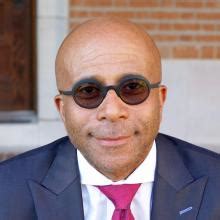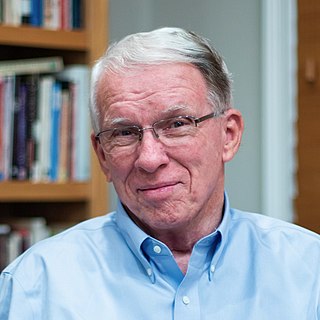A Quote by Anthony B Pinn
Perhaps God gives us a hint about whom God favors through physical and material prosperity. So those who are doing well are probably favored by God.
Related Quotes
There are two gods. The god our teachers teach us about, and the God who teaches us. The god about whom people usually talk, and the God who talks to us. The god we learn to fear, and the God who speaks to us of mercy. The god who is somewhere up on high, and the God who is here in our daily lives. The god who demands punishment, and the God who forgives us our trespasses. The god who threatens us with the torments of Hell, and the God who shows us the true path.
There are two gods. A god who casts us off because of our sins, and a God who calls to us with His love.
And there is something profoundly humbling about knowing God. I’m not talking about the trinket God or the genie-in-a-lamp God. I mean the God who invented the tree in my front yard, the beauty of my sweetheart, the taste of a blueberry, the violence of a river at flood. There are a lot of religious trends that would have us controlling God, telling us that if we do this that and the other, God will jump through our hoops like a monkey. But this other God, this real God, is awesome and strong, all-encompassing and passionate, and for reasons I will never understand, he wants to father us.
You hear a lot about God these days: God, the beneficent; God, the all-great; God, the Almighty; God, the most powerful; God, the giver of life; God, the creator of death. I mean, we're hearing about God all the time, so we better learn how to deal with it. But if we know anything about God, God is arbitrary.
I believe in God, who can respond to prayers, to whom we can give trust and without whom life on this earth would be without meaning (a tale told by an idiot). I believe that God has revealed Himself to us in many ways and through many men and women, and that for us here in the West the clearest revelation is through Jesus and those that have followed him.
I just want to encourage every one of us to realize when we obey God, we’re not doing it for God—I mean, that’s one way to look at it—we’re doing it for ourselves, because God takes pleasure when we’re happy. That’s the thing that gives Him the greatest joy. So, I want you to know this morning: Just do good for your own self. Do good because God wants you to be happy. When you come to church, when you worship Him, you’re not doing it for God really. You’re doing it for yourself, because that’s what makes God happy. Amen?
I believe God is doing a new thing in the world. God is always moving us to include more people in the kingdom. God has taught us that about people of color, about women, and now I think God is teaching that about gay and lesbian folk. And I am humbled and privileged that I might be playing a very small part in that grand and wonderful plan of God's.
The law of giving and receiving is fundamental, and relates just as much to God as it does to us. As we go through the door of giving ourselves to God in worship we find that God comes through that same door and gives Himself to us. God's insistence that we worship Him is not really a demand at all but an offer-an offer to share Himself with us. When God asks us to worship Him, He is asking us to fulfill the deepest longing in Himself, which is His passionate desire to give Himself to us. It is what Martin Luther called "the joyful exchange."
We must each walk through life on our own, but we don't have to do it alone. God wants a powerful people. He gives His power to those who are faithful. We have a sacred obligation to seek after the power of God and then to use that power as He directs. And when we have the power of God with us, nothing is impossible.
I asked for strength,
and God gave me difficulties to make me strong.
I asked for wisdom,
and God gave me problems to learn to solve.
I asked for prosperity,
and God gave me a brain and brawn to work.
I asked for courage,
and God gave me dangers to overcome.
I asked for love,
and God gave me people to help.
I asked for favors,
and God gave me opportunities.
I received nothing I wanted.
I received everything I needed.
God felt, God tasted and enjoyed is indeed God, but God with those gifts which flatter the soul, God in darkness, in privation, in forsakenness, in sensibility, is so much God, that he is so to speak God bare and alone. Shall we fear this death, which is to produce in us the true divine life of grace?
There’s never a moment in all our lives, from the day we trusted Christ till the day we see Him, when God is not longing to bless us. At every moment, in every circumstance, God is doing us good. He never stops. It gives Him too much pleasure. God is not waiting to bless us after our troubles end. He is blessing us right now, in and through those troubles. At this exact moment, He is giving us what He thinks is good.
All men ought to think of Christ because of the office Christ fills between God and man. He is the eternal Son of God through whom alone the Father can be known, approached, and served. He is the appointed Mediator between God and man through whom alone we can be reconciled with God, pardoned, justified, and saved.


































